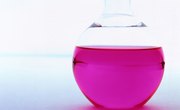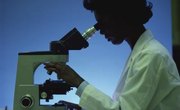Writing a powerful conclusion shows your professor that you took your research seriously and immersed yourself in the study. A quality laboratory report ends with an insightful conclusion that convincingly explains why the findings matter. The conclusion is your final opportunity to state your case and back it up with hard evidence.
Steps to Writing Your Conclusion
Start by reviewing your introduction and following that structure when wrapping up your report. Next, restate the purpose and goals of the study undertaken. Then, indicate the methods and procedures you used to conduct an experiment to test your research question. For example, briefly describe your procedures for growing one group of 4-inch tomato seedlings in a windowsill and another group under artificial light to examine how sunlight affects plant growth and color.
Next, objectively share your observations, summarize your data, and analyze what your findings suggest to you about the subject you’re investigating. Evaluate whether your data tend to support or contradict your original research hypothesis. Disclose any errors in your methodology. In addition, offer interesting ideas for changing the experiment in slightly different ways. You may also want to mention applications of your research to everyday life.
Example of a Lab Report Conclusion
The purpose of this experiment was to study the deleterious effects of acid rain on growing vegetation. Plant species sensitive to acidic environments could become extinct as pollution increases. In this experiment, 4-inch cuttings of coleus plant grew in separate glass beakers of distilled water, and similar size coleus cuttings grew in acidic vinegar water solutions ranging from 2 to 4 pH. All plants received the same amount of sun exposure in the laboratory.
Observation after 28 days showed a correlation between the level of acidity and stunted root growth. The coleus in distilled water grew an average of 2 inches taller and sprouted three times more roots. The results supported the hypothesis that acid deposition is life-threatening to plants. The number and type of plants available for use in the experiment limited the study. Future experiments could probe the effects of vinegar water on other types of plants at different stages of growth.
When is a Lab Report Conclusion Needed?
Scientific courses such as biology, chemistry, physics and engineering frequently require hands-on activity in a laboratory with written reports of findings and conclusions. Behavioral science courses may also require original research and reports with conclusions. A well-written conclusion shows you engaged in critical thinking, interpreted data, and related your findings back to the original research question that motivated you to do the study. Research builds on earlier findings. Your study may be helpful regardless of whether the results led you to accept or reject your hypothesis.
Related Articles
References
Writer Bio
Dr. Mary Dowd is a dean of students whose job includes student conduct, leading the behavioral consultation team, crisis response, retention and the working with the veterans resource center. She enjoys helping parents and students solve problems through advising, teaching and writing online articles that appear on many sites. Dr. Dowd also contributes to scholarly books and journal articles.









